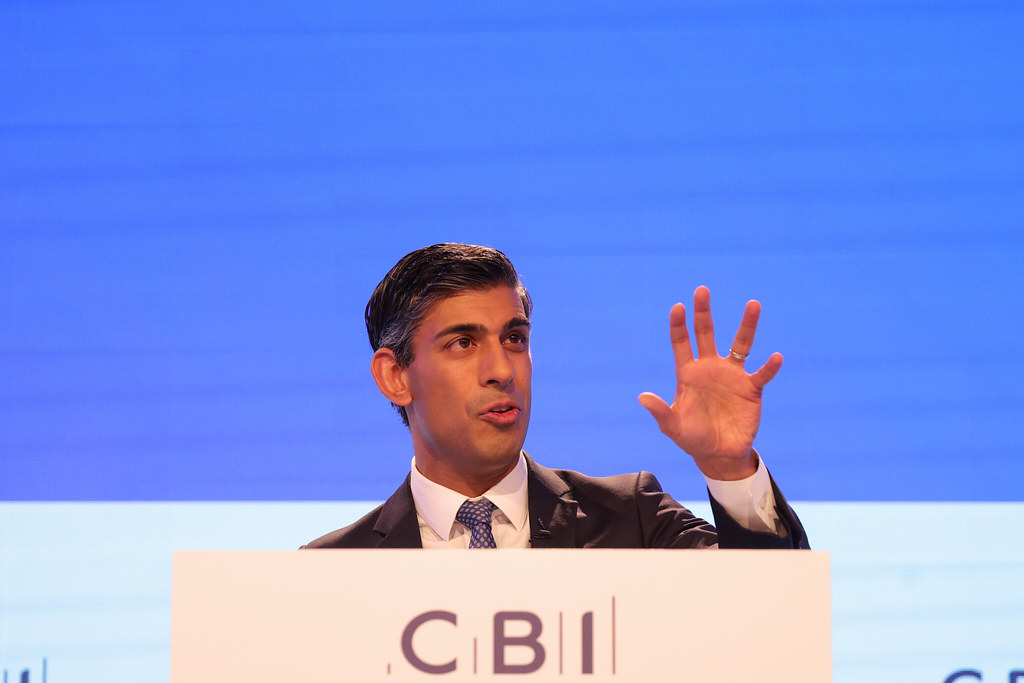Paris-based OECD said of the members of the G20 group of leading developed and developing nations, only Russia would suffer a bigger contraction than Britain in 2023…reports Asian Lite News
Britain will be the second weakest performer among the world’s big economies next year as the global economy continues to suffer the knock-on effects of the biggest energy shock in four decades, a leading international institution has warned, according to a media report.
The Paris-based Organisation for Economic Cooperation and Development (OECD) said of the members of the G20 group of leading developed and developing nations, only Russia would suffer a bigger contraction than Britain in 2023, The Guardian reported
In its half-yearly economic outlook, the OECD said that UK’s economy would expand by 4.4 per cent this year – the sixth fastest in the G20 – but contract by 0.4 per cent next year.
Although most countries have had their growth forecasts cut by the OECD since June, only Russia’s 5.6 per cent contraction is forecast to be more severe than Britain’s. The poor performance is forecast to continue in 2024 with expansion of 0.2 per cent — the joint weakest alongside Russia, The Guardian reported.
The OECD’s acting chief economist, Alvaro Pereira, said he was expecting a less severe downturn next year than the 1.4 per cent decline pencilled in by the Office for Budget Responsibility in last week’s autumn statement, but a more subdued recovery in 2024 than the OBR has pencilled in.
Pereira said the OECD thought interest rates would peak at a lower level than the OBR is anticipating, and that the UK would suffer a four-quarter recession ending in the middle of 2023.
Overall, the OECD expects growth across its 38 rich-country members to be 0.8 per cent in 2023 – half the level expected six months ago.
The US and the Eurozone are forecast to expand by 0.5 per cent, but growth is expected to be stronger in three big Asian economies – China (4.6 per cent), Indonesia (4.7 per cent) and India (5.7 per cent), The Guardian reported.
The government is moving away from universal support for energy bills after this winter, the prime minister’s spokesman pointed out.
“We’re taking a different approach post-April to the energy support, targeting it towards the most vulnerable,” he said.
In response to the OECD’s forecast for the economy, he said this year the UK was forecast to be the fastest growing economy in the G7.
“These are challenges that are affecting different countries at slightly different times. We emerged from the pandemic faster than many other countries in Europe. But some of these challenges are shared,” he said.
Labour’s shadow chief secretary to the Treasury Pat McFadden said: “We are forecast to be the only OECD economy that will be smaller in 2024 than it was in 2019.
“This is the Tory doom loop. A low growth spiral leading to higher taxes, lower investment, squeezed wages and poor public services.”
Liberal Democrat Treasury spokesperson Sarah Olney described the OECD forecast as a “damning verdict” and said a succession of Conservative chancellors this year had wrecked hope of growth.
The OECD said UK inflation – which hit a 41-year high of 11.1% in October – is likely to peak at the end of this year but remain above 9% in early 2023, slowing to 4.5% by the end of next year.
The organisation expects UK interest rates to rise from their current level of 3% to 4.5% next April and unemployment to rise to 5% by the end of 2024.
The cost of paying for help with energy bills showed up on the government’s accounts in October, as households began receiving the first tranche of a £400 subsidy, and the lower £2,500 energy price cap came into effect.
The Office for National Statistics (ONS) estimated that these schemes together cost £3.4bn in October.
That pushed up government borrowing – the difference between government spending and tax income – to £13.5bn last month, the ONS said.
Although the figure was £4.4bn higher than last year it was lower than analysts had expected.
The ONS said that borrowing in the financial year to date – covering April to October 2022 – was £84.4bn, although this was £21.7bn less than in the same period last year.
ALSO READ: Austin meets China’s Wei in Cambodia

Leave a Reply